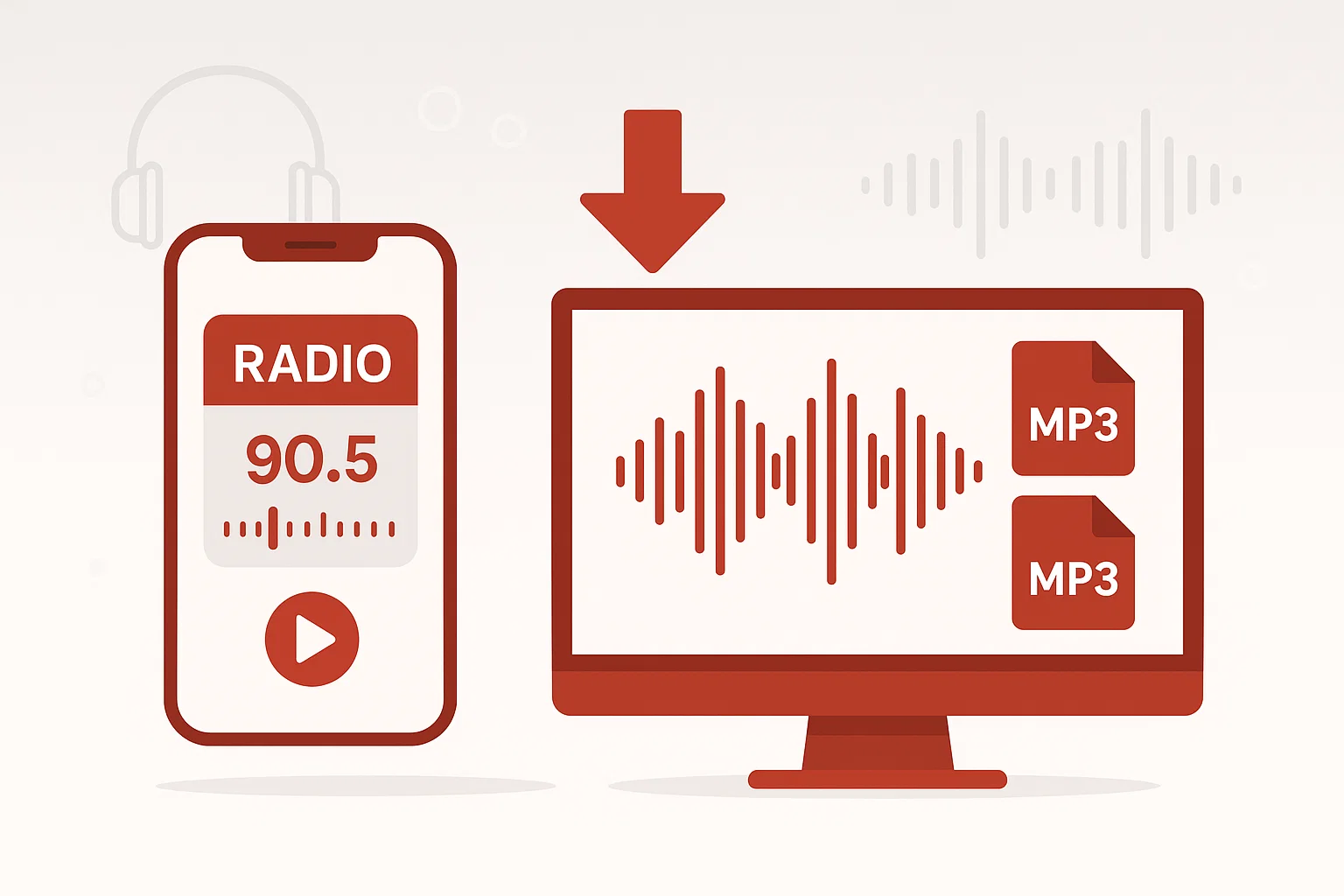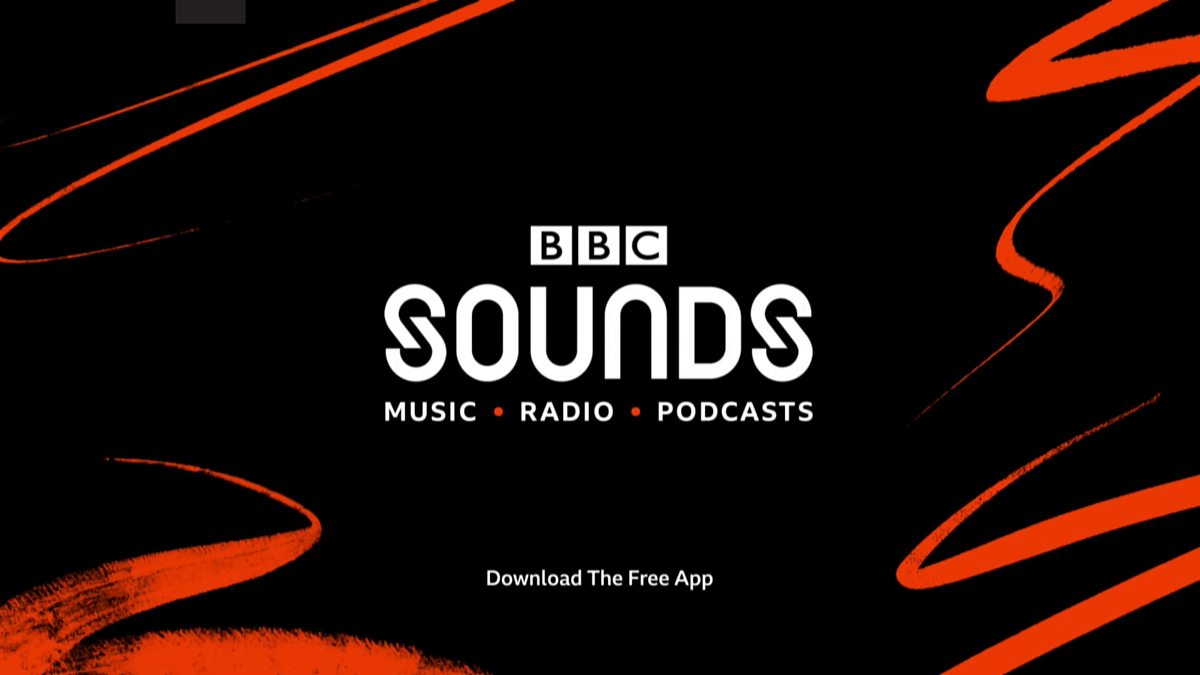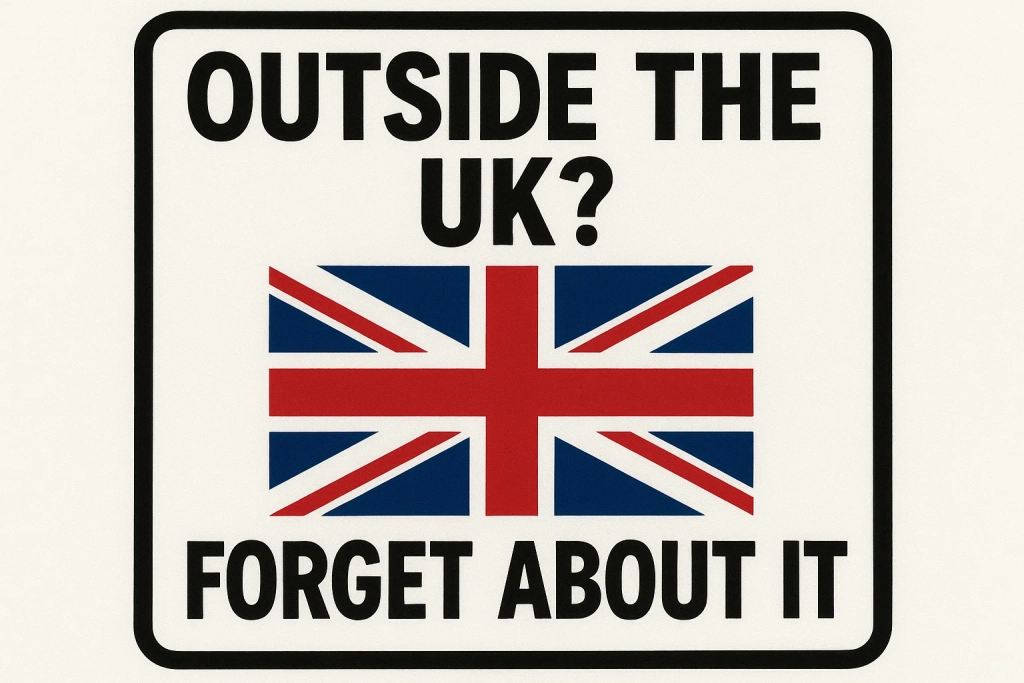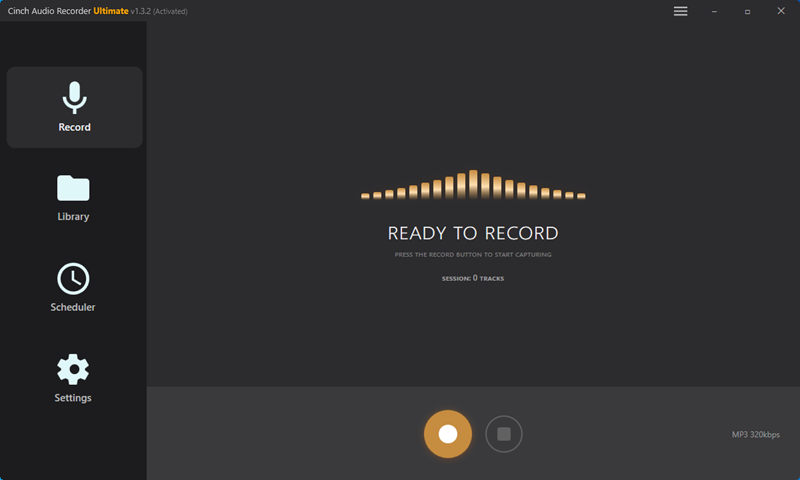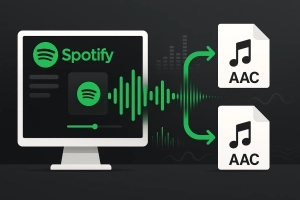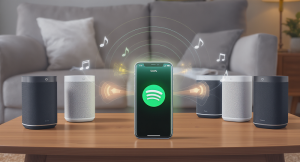Here’s a stat that might surprise you: BBC Sounds hit a record-breaking 7.1 million listeners in Q1 2025, but here’s the catch — most users don’t realize their downloaded content vanishes after just 30 days. I learned this the hard way when my carefully curated collection of BBC Radio 3 concerts just… disappeared.
If you’re tired of losing your favorite BBC shows or can’t access them outside the UK, you’re not alone.
This guide covers every method I’ve tested to download and record BBC Sounds permanently, from official options to professional recording tools that actually work.
In This Article:
The Official Way: Does BBC’s Built-in Download Actually Work?
Let me start with the obvious choice — BBC’s own download feature. It’s straightforward, but comes with some frustrating limitations I wish I’d known about earlier.
Mobile App: The Easy Route (Until It Isn’t)
The BBC Sounds app makes downloading pretty simple:
- Open the app and search for your target show
- Tap the episode you want
- Hit the Download button below the player
- Check your downloads in “My Sounds > Downloads”
Works like a charm — until it doesn’t.
Website Method: Why I Almost Gave Up Here
For computer users, the process is slightly different:
- Find your episode on the BBC Sounds website
- Click “Programme Website” at the bottom
- Look for the Download button on the episode page
- Choose your quality and download
But here’s where it gets tricky — not all shows have this option.
Here’s Why BBC’s “Solution” Actually Sucks
I thought I’d found the perfect solution until reality hit. The 30-day expiration isn’t just a suggestion — it’s enforced. I’ve watched entire collections disappear overnight.
That Brutal 30-Day Countdown (And Why It Exists)
BBC automatically deletes downloaded content after 30 days, regardless of how much you’ve listened to it. This isn’t about storage space — it’s copyright licensing. The BBC pays for temporary access rights, not permanent ones.
What really frustrated me was losing a BBC Radio 4 documentary series I was halfway through. One day it was there, the next — gone. No warning, no grace period.
Outside the UK? Forget About It
Living outside the UK? You’re out of luck with official downloads. The app simply won’t let you download anything, and the website’s download buttons disappear. I’ve tested this from multiple countries — the restriction is real and consistent.
Workaround reality check: VPNs might help access the content, but downloads still expire after 30 days. Plus, BBC actively blocks many VPN services, making this an unreliable long-term solution.
The geographic restrictions extend beyond just downloads. Many BBC Sounds exclusive podcasts and radio shows aren’t available for streaming outside the UK either, making recording tools essential for international listeners.
Finally Found Something That Actually Works: Cinch Audio Recorder
After trying countless methods, I found Cinch Audio Recorder — and honestly, it changed everything. Unlike other tools that require complex setups or virtual audio cables, Cinch just works.
What Makes This Different From All The Junk Out There?
Here’s what makes Cinch different: it captures audio directly from your sound card using CAC technology. No virtual cables, no account logins, no risk of getting banned from streaming services. It’s like having a digital recorder sitting next to your speakers.
The best part? It automatically grabs ID3 tags, so your BBC recordings come with proper titles, show information, and even artwork when available.
Here’s Exactly How I Do It (No BS Steps)
I’ll walk you through exactly how I record BBC Sounds with Cinch:
- Download and install Cinch Audio Recorder from the official site
- Launch the program and click the Record tab
- Hit the red Record button — Cinch is now ready to capture
- Play your BBC content in any browser or app
- Let it record — Cinch handles everything automatically
- Stop recording when the show ends
Advanced tip: Enable the “Auto-split by silence” feature in Cinch settings. This automatically separates individual songs or segments, perfect for BBC Radio 1’s Live Lounge sessions where you want each track as a separate file.
For podcast-style content, I recommend keeping recordings as single files. But for music shows, auto-splitting saves hours of manual editing later.
My System for Organizing All This Stuff
Once recorded, click the Library tab to see all your captures. Right-click any file and select “Open File Location” to find your MP3s. I organize mine by show type — news, music, documentaries — makes finding stuff so much easier.
Broke? Here’s What Free Tools Can Do
Not ready to invest in software? I get it. Here are the free methods I’ve actually tested with BBC Sounds.
Audacity: Free But You’ll Work For It
Audacity is solid for basic recording, though the setup took me a few tries to get right:
- Download Audacity and set Host to “Windows WASAPI”
- Select your audio output device (usually “Speakers” or “Headphones”)
- Play BBC content and hit Record
- Export as MP3 when finished
The catch? You’ll need to manually split long recordings and add metadata yourself. For occasional use, it’s fine. For regular BBC listening, it gets tedious fast.
Pro tip from my experience: Set the recording level to about 0.8 to avoid clipping. I learned this after ruining several recordings with distorted audio.
Browser Tools: Hit or Miss (Mostly Miss)
Apowersoft Free Online Audio Recorder works in your browser. Select “System Sound,” play your BBC content, and record. Quality is decent, but you’re limited by your browser’s capabilities and internet stability.
Another option is Online Voice Recorder, though it requires microphone access and picks up background noise. Not ideal for clean BBC recordings, but it works in a pinch.
Reality check: Free tools require more manual work and often produce inconsistent results. If you’re serious about building a BBC audio library, investing in proper software saves hours of frustration.
⚠️ Important Warning: Some free online recording tools require browser plugins or Java installations that can pose security risks. Always download from official sources and scan files before installation. When in doubt, stick with established tools like Audacity or invest in professional software.
The Audio Quality Truth (With Real Numbers)
This is where most guides get vague, so let me give you the real numbers based on my testing.
Which Format Actually Sounds Better? I Tested Them All
BBC Sounds streams at 320kbps AAC — that’s your quality ceiling. Recording to FLAC won’t improve what’s already compressed. I stick with 320kbps MP3 for compatibility, though AAC preserves slightly better quality at the same bitrate.
Here’s what I discovered through actual testing:
| Format | File Size (1 hour) | Quality | Compatibility |
|---|---|---|---|
| MP3 320kbps | ~144MB | ⭐⭐⭐⭐ | ✅ Universal |
| AAC 320kbps | ~138MB | ⭐⭐⭐⭐⭐ | ✅ Most devices |
| FLAC | ~600MB | ⭐⭐⭐⭐ | ❌ Limited |
My Settings That Actually Work (Stop Wasting Space)
Set your recording software to match BBC’s 320kbps output. Going higher wastes space without improving quality. I learned this after creating massive FLAC files that sounded identical to 320kbps MP3s.
My recommended settings:
- Sample rate: 44.1 kHz (matches BBC’s stream)
- Bit depth: 16-bit (sufficient for streaming content)
- Format: MP3 320kbps or AAC 320kbps
For classical music or BBC Radio 3 concerts, AAC slightly edges out MP3 in preserving subtle details. For talk shows and news, MP3 is perfectly fine.
💡 Quick Tip: Want to test audio quality yourself? Record the same BBC content in both MP3 and AAC, then play them back-to-back. Most people can’t hear the difference on typical computer speakers, but audiophiles with good headphones might notice subtle improvements in AAC.
Legal Stuff You Should Know
Recording BBC content for personal use falls under Fair Use in most countries. I’m not a lawyer, but based on forum discussions and general copyright principles, personal recording is typically acceptable. Just don’t redistribute or sell the recordings.
The key word is “personal” — sharing with friends or posting online crosses into copyright infringement territory. Learn more about digital rights management and recording rights.
Troubleshooting Common Problems
No Audio in Recordings
This stumped me initially. Check that your recording software is capturing the right audio source. In Windows, make sure “Stereo Mix” or “What U Hear” is enabled in your sound settings.
Step-by-step fix:
- Right-click the speaker icon in your system tray
- Select “Open Sound settings”
- Click “Sound Control Panel” on the right
- Go to the Recording tab
- Enable “Stereo Mix” if it’s disabled
Poor Audio Quality
If recordings sound muffled, your source volume might be too low. Keep BBC’s player volume at maximum — you can always adjust your speakers separately.
Recording Cuts Off Unexpectedly
This happened to me during a 2-hour BBC documentary. Most free tools have time limits or memory constraints. Professional tools like Cinch Audio Recorder handle long recordings without issues.
BBC Player Won’t Load
If BBC Sounds won’t play in your browser, try clearing your cache or switching browsers. Chrome and Firefox work best in my experience. Edge sometimes has playback issues with BBC’s player.
Recordings Have Gaps or Skips
Usually caused by high CPU usage or insufficient RAM. Close other programs while recording, especially video streaming or gaming applications. For consistent results, I recommend using dedicated streaming audio recording software rather than browser-based solutions.
Conclusion
BBC Sounds offers incredible content, but the official download limitations are genuinely frustrating. Whether you choose the official 30-day downloads, free tools like Audacity, or professional software like Cinch Audio Recorder, you now have options that actually work.
For occasional listening, the official method is fine. For building a permanent collection or accessing content outside the UK, recording tools become essential. Choose what fits your needs and listening habits.
My personal recommendation: If you’re serious about BBC content, invest in proper recording software. The time saved on manual editing and the reliability of automated recording more than justify the cost. Plus, you can use the same tool for recording other streaming services like Spotify or Apple Music.
The bottom line? Don’t let artificial limitations stop you from enjoying BBC’s amazing content on your terms. With the right tools and knowledge, you can build a permanent library that’s truly yours.
FAQ
Can I legally record BBC Sounds for personal use?
Yes, recording for personal use typically falls under Fair Use provisions in most countries. Just keep it personal — don’t share or sell the recordings.
Why do my BBC downloads disappear after 30 days?
BBC’s licensing agreements only allow temporary downloads. After 30 days, the content automatically deletes to comply with copyright restrictions. It’s not a bug — it’s intentional.
What’s the best audio quality I can get from BBC Sounds?
BBC streams at 320kbps AAC. Recording at this quality gives you the best possible result without wasting storage space. Going higher won’t improve quality since you’re limited by the source.
Can I use these methods outside the UK?
Recording methods work anywhere, but official BBC downloads are restricted to UK users only. That’s exactly why recording tools become essential for international listeners.
Which method works best for long radio shows?
For shows over an hour, I recommend Cinch Audio Recorder. It automatically handles long recordings and splits them properly, unlike some free tools that struggle with extended captures.
